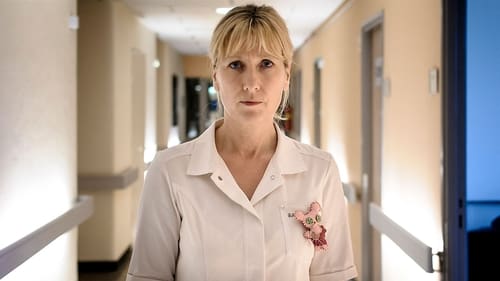
Writer
아동 병원의 간호사로 일하고 있는 루시아는 고집스러운 성격이지만 나이 든 노인과 허약한 아기들을 돌보는 것을 자신의 사명으로 여기는 평범한 여성이다. 그러던 어느 날, 그녀가 돌보던 아기가 갑작스럽게 죽는 사건이 발생하고, 이를 수상하게 여긴 병원은 경찰에 사건을 의뢰한다. 패기 넘치는 젊은 여검사 유디스는 적극적으로 나서서 사건을 파헤치고 루시아의 이전 행적들이 심상치 않음을 발견, 그녀를 살인사건의 용의자라 확신한다. 루시아가 계속해서 무죄를 주장하는 가운데 여론까지 가세해 그녀를 ‘죽음의 천사’라 부르기 시작하고, 결국 그녀는 4건의 살인사건 혐의로 종신형을 선고 받는다. 그러던 어느 날, 모든 것이 완벽해 보이는 사건에 한 두 가지 허점이 보이기 시작하고, 자신의 판단을 확신했던 유디스는 수사가 어디서부터인가 잘못되었음을 직감 하는데… 유럽을 뒤흔든 전대미문의 충격실화가 공개된다!

Claudia
How do you deal with the fact that someone close to heart has suddenly disappeared without a trace? Can you go on living whilst waiting for his return?

Writer
When her husband Ted is put in jail Bibi suddenly needs to provide for herself and decides to contact fortune teller Madame Jeanette.

Writer
Making Waves is the story of Cella (Jacqueline Blom) and her 71-year-old mother Johanna (Kitty Courbois). Life smiles upon Cella. Happily divorced, having two children and a successful job as a presenter at a local station, for which she interviews people every morning who take the ferry across the IJ river. In her enthusiasm, Cella resembles her mother, once a celebrated violinist, but the similarity also causes friction between the two women. Just when Cella meets a new love, her father's sudden death puts her life on a different track. Johanna increasingly muddles past and present and brings back fragments of memories that point to a painful secret she carries on her back. Cella tries to dig up the truth.

(as Monique Kramer)
The point of departure for this film is the 1981 composition De Tijd by Dutch composer Louis Andriessen. Van der Keuken leaves the music undisturbed as an autonomous soundtrack and has the images engage in a sort of battle with it. These images are associations, fragments of events, scenes and situations. The film is preceded by a text by Bert Schierbeek.

Rita Winters
Unrelenting pessimism dominates this slow-paced, dark film, the debut feature from director Digna Sinke dedicated to an archetypal born loser named Marian (Josee Ruiter). Marian is a journalist who has been working in Latin America and who arrives home just after her father dies to find out that the man she had married for purely political reasons might be deported because the authorities found out he was not living with her. Meanwhile, Marian is upset that her mother and sister are keeping her mentally handicapped brother in an institution, and she goes there to get him released into her custody -- a mistake it turns out. He is actually worse off with her, and vice-versa. On top of everything, Marian cannot break away from the depression she feels over a tragic incident that happened while she was in Latin America -- and anything she does is colored by that moment from the past. These burdens become almost too much to bear, both for Marian and the viewers.





